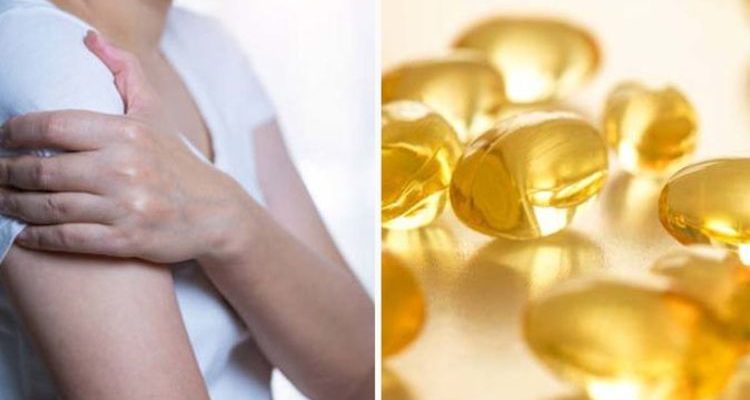Rheumatoid Arthritis: NHS on common signs and symptoms
We use your sign-up to provide content in ways you’ve consented to and to improve our understanding of you. This may include adverts from us and 3rd parties based on our understanding. You can unsubscribe at any time. More info
Around 10 million people in the UK are thought to have arthritis and there are more than 100 types of arthritis and related conditions. The symptoms of arthritis can vary from week to week so joint pain may come and go.
The Arthritis Foundation says that several nutritional supplements “have shown promise” for relieving pain, stiffness and other arthritis symptoms.
The organisation suggests that fish oil, which contains polyunsaturated omega-3 fatty acids, “have potent anti-inflammatory properties”.
It notes that a 2017 systematic review of studies found that omega-3 supplements “reduced joint pain, stiffness and swelling” for those with rheumatoid arthritis.
In the UK, rheumatoid arthritis affects more than 400,000 people. In rheumatoid arthritis, the body’s immune system targets affected joints, which leads to pain and swelling.

Rheumatoid arthritis often starts when a person is between 40 and 50 years old, and women are three times more likely to be affected than men.
Osteoarthritis is the most common type of arthritis in the UK, affecting around eight million people, while rheumatoid arthritis affects more than 400,000 people.
It suggests that taking these supplements might help some people cut down on their use of pain relievers “and avoid their side effects”.
If you notice symptoms or are concerned about arthritis it is important to speak to your GP.
The main goals of arthritis treatments are to reduce symptoms and to improve quality of life.
The Arthritis Foundation states: “Morning stiffness that lasts longer than an hour is good reason to suspect arthritis. Two other key signs are swelling and difficulty moving a joint.”
Versus Arthritis says: “A joint is where two or more bones meet, such as in the fingers, knees, and shoulders. Joints hold bones in place and allow them to move freely within limits.”
The charity notes: “Most of the joints in our body are surrounded by a strong capsule. The capsule is filled with a thick fluid that helps to lubricate the joint.
“These capsules hold our bones in place. They do this with the help of ligaments. These are a bit like very strong elastic bands.”
If you have arthritis, your joints will most likely feel stiff and be hard to move, you may also find that the area around your joints may feel warm, look red or puffy.
Finding out what’s causing your pain is key to finding the right treatment and self-help options, says Versus Arthritis charity.
As well as causing pain and stiffness, inflammation can cause permanent damage to a joint, so starting effective treatment early on can help to minimise damage.

“It’s important to see a doctor if you get any new symptoms or if you have any trouble with drugs you’re taking,” the charity adds.
There are some lifestyle habits and changes that might help manage symptoms, though not necessarily in all cases.
These include eating a healthy diet and managing your weight. If you are overweight it can increase complications of arthritis and contribute to joint pain.
“It’s very important to eat a healthy, balanced diet if you have arthritis. Eating healthily will give you all the nutrients you need and help you maintain a healthy weight,” says the NHS.
Source: Read Full Article
